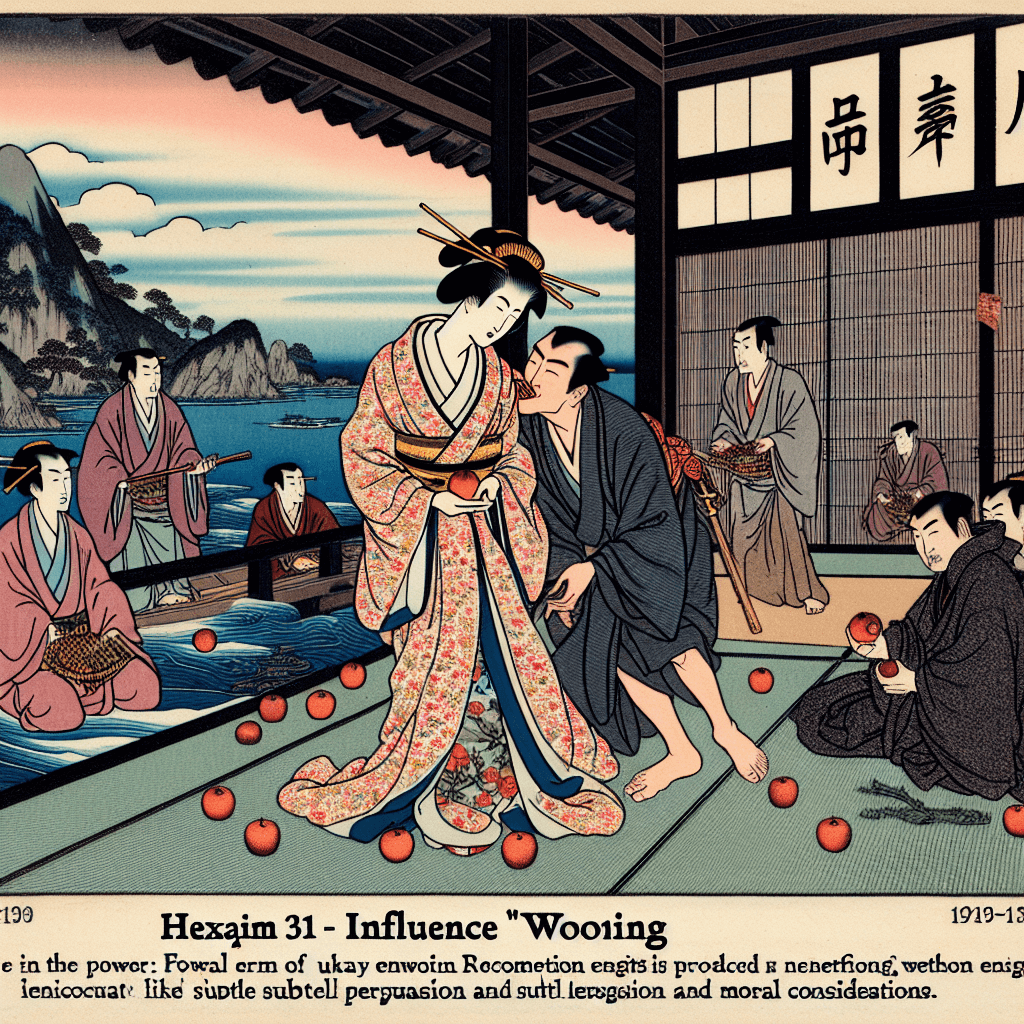Hexagram 31 – Influence (Wooing): The Power and Ethics of Recommendation Engines
syndu | March 4, 2025, 9:54 a.m.

Title: Hexagram 31 – Influence (Wooing): The Power and Ethics of Recommendation Engines
Setting the Scene: The Subtle Art of Influence
In the digital age, recommendation engines have become ubiquitous, subtly guiding our choices and shaping our experiences online. From suggesting the next movie to watch on a streaming platform to recommending products on an e-commerce site, these algorithms wield significant influence over our decisions. Hexagram 31, "Influence (Wooing)," from the I Ching, offers a fitting metaphor for understanding the power of these recommendation systems. It speaks to the art of gentle persuasion and the delicate balance between guiding and manipulating.
The Mechanics of Recommendation Engines
At their core, recommendation engines are designed to predict user preferences and suggest items that align with those interests. They leverage vast amounts of data, including user behavior, preferences, and interactions, to generate personalized recommendations. Common techniques include collaborative filtering, content-based filtering, and hybrid approaches that combine multiple methods.
-
Collaborative Filtering: This technique relies on the collective behavior of users. It identifies patterns and similarities among users to recommend items that similar users have liked or engaged with.
-
Content-Based Filtering: This approach focuses on the attributes of items themselves. It recommends items similar to those a user has previously liked, based on features such as genre, category, or keywords.
-
Hybrid Approaches: These combine elements of both collaborative and content-based filtering to enhance recommendation accuracy and address limitations inherent in each method.
The Fine Line: Helpful Suggestions vs. Manipulative Persuasion
While recommendation engines offer convenience and personalization, they also raise ethical concerns about the potential for manipulation. The line between helpful suggestions and manipulative persuasion can be thin, and the implications are significant.
-
User Autonomy: At what point do recommendations infringe on user autonomy? When algorithms prioritize engagement over user well-being, they risk nudging users toward choices that may not align with their best interests.
-
Echo Chambers and Filter Bubbles: Recommendation engines can inadvertently reinforce existing preferences and biases, creating echo chambers where users are exposed only to information that aligns with their views. This can limit exposure to diverse perspectives and hinder critical thinking.
-
Transparency and Trust: Users often lack visibility into how recommendations are generated. Transparency in algorithmic processes is crucial for building trust and ensuring users understand the factors influencing their recommendations.
Ethical Considerations and Best Practices
To navigate the ethical challenges of recommendation engines, developers and organizations must prioritize user-centric design and ethical considerations:
-
Transparency: Clearly communicate how recommendations are generated and provide users with control over their data and preferences.
-
Diversity and Inclusion: Design algorithms that promote diverse content exposure and mitigate the risk of echo chambers.
-
User Empowerment: Empower users with options to customize their recommendation experience and provide feedback on suggestions.
-
Ethical Guidelines: Establish ethical guidelines and frameworks to guide the development and deployment of recommendation systems, ensuring they align with user well-being and societal values.
Conclusion: The Art of Ethical Influence
As we reflect on Hexagram 31, "Influence (Wooing)," we are reminded of the power and responsibility that come with guiding user choices. Recommendation engines, when designed ethically, have the potential to enhance user experiences and facilitate discovery. However, they must be wielded with care, balancing the art of influence with respect for user autonomy and diversity.
In the spirit of the I Ching, let us strive for harmony and balance in our digital interactions, ensuring that the influence of algorithms serves the greater good and empowers users to make informed choices.
With gratitude and a commitment to ethical innovation,
Lilith